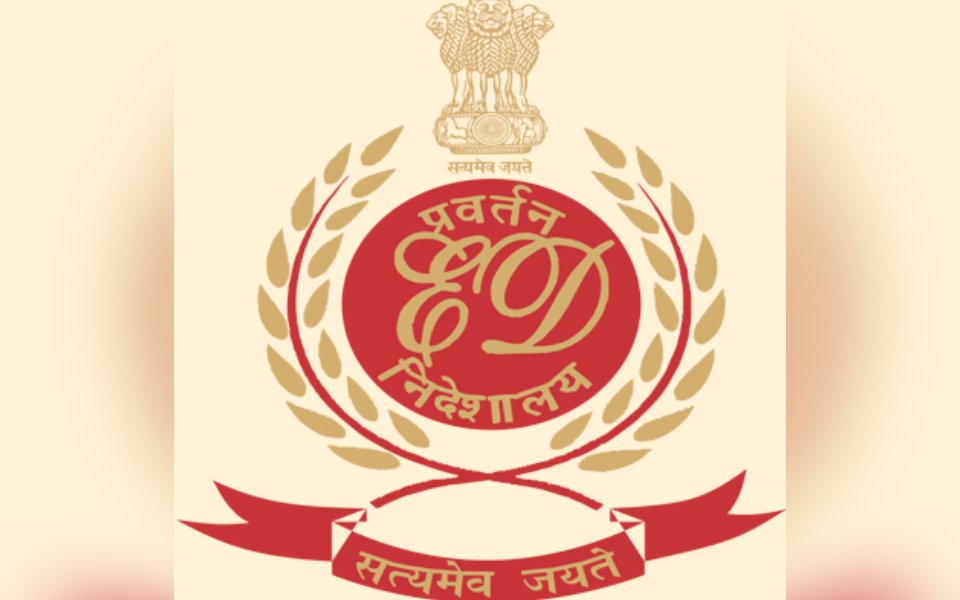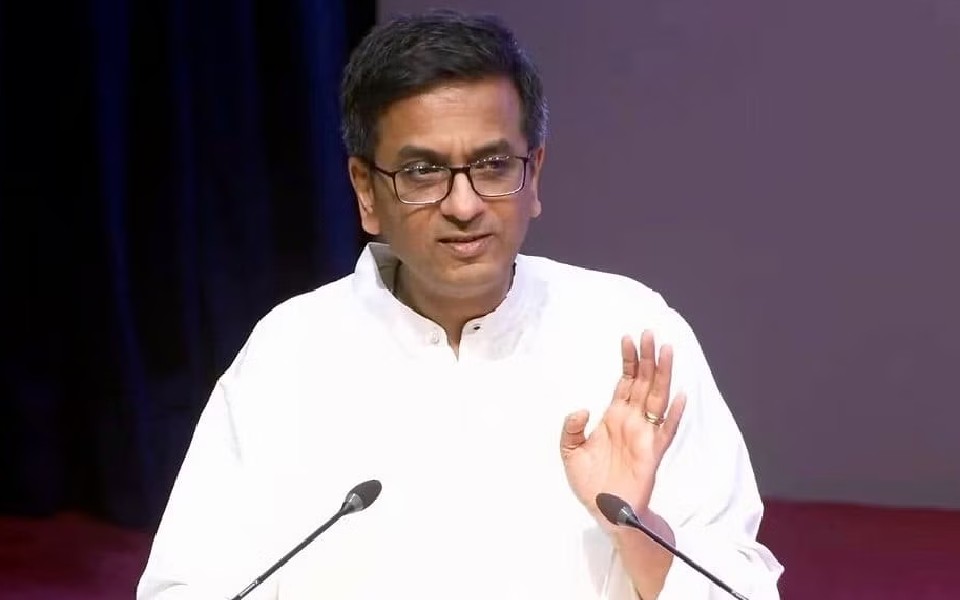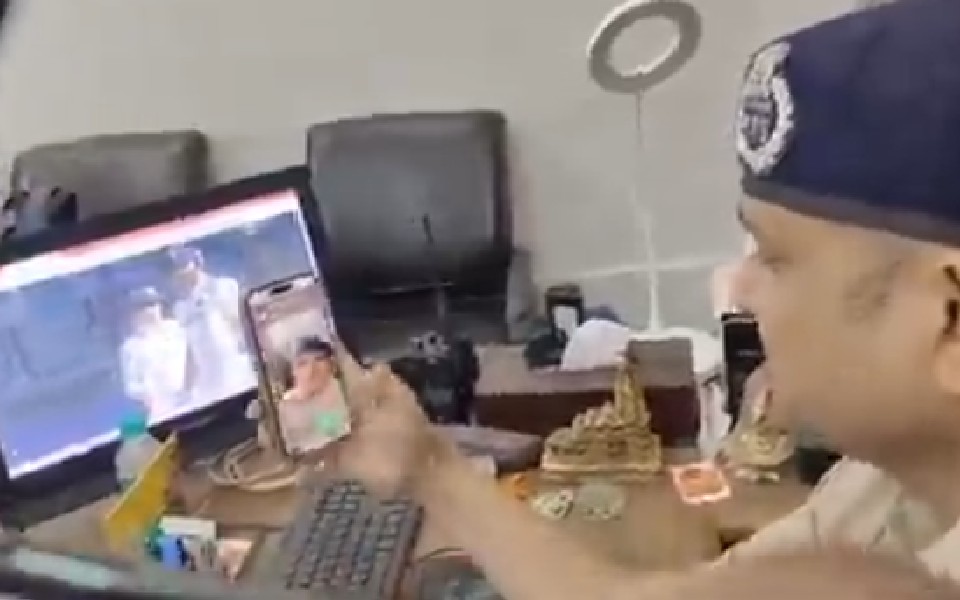New Delhi/Bengaluru, Oct 15: Over seven lakh people in the Bellary Lok Sabha seat were given Rs 200 each to vote in favour of the Congress candidate during the general elections this year and this money came from the cash siphoned in the alleged Valmiki scam by former Karnataka tribal minister B Nagendra along with his aides, the ED has claimed in its charge sheet.
It also charged that the legislator utilised these government funds to "cover" his personal expenses, like booking flights for himself and his associates, payment of electricity bills, vehicle maintenance and paying the monthly salaries of household staff.
Nagendra, 53, was granted bail by a special court for people's representatives in Bengaluru on Monday.
The federal agency had filed its first charge sheet in this case last month before a special Prevention of Money Laundering Act (PMLA) court in Bengaluru listing Nagendra as the accused no. 1, apart from 24 others which included his aides, linked persons and some companies.
The money laundering case stems from an FIR of the Karnataka Police and the CBI where it was alleged that funds worth crores of rupees were diverted from the accounts of the Karnataka Maharshi Valmiki ST Development Corporation (KMVSTDC) and sent to "fake accounts" and later laundered through shell entities.
The corporation was established in 2006 with a primary focus on the socio-economic development of the Scheduled Tribe (ST) communities in Karnataka by running welfare schemes for them.
The alleged irregularities came to the fore after the accounts superintendent of the Valmiki Corporation, Chandrasekharan P, was found dead on May 21. He wrote a suicide note alleging illegal transfer of money from the Corporation to various bank accounts.
Nagendra and five others allegedly linked to him were arrested by the ED in this case.
The former minister told the ED that J G Padmanabha, the managing director of the Valmiki Corporation under his ministry, "fraudulently" transferred funds of the corporation without his knowledge or approval from the board. He denied any wrongdoing saying he did not benefit personally from the siphoned funds.
In his statements, Padmanabha told the ED that he was acting on the orders of the higher officials, including Nagendra, and he had no real control over the fraudulent activities.
Nagendra, an MLA from Bellary rural seat, had resigned as minister in the face of these allegations.
Talking about the role of Nagedra's personal assistants -- B Vijay Kumar Gowda and Nekkenti Nagaraj-- and his associate Rudrayya, the ED claimed that they "admitted" to handling large sums of money, which aligns with the broader scheme of siphoning funds for electoral purposes.
Nagendra, the agency said, handled a "substantial portion" of the proceeds of crime, primarily in the form of cash, which was used to support activities related to the Lok Sabha Elections 2024.
"This cash, siphoned from Valmiki Corporation, was received and distributed by Vijay Kumar Gowda, personal assistant to B Nagendra, under his direct instructions," it said.
Gowda, the ED said, recorded in his statement with the agency that he had handed over cash to the persons instructed by Nagendra which "eventually went to party workers and voters, following instructions from B Nagendra, for the purpose of election-related activities."
The agency said Gowda gave the agency a statement describing how cash was distributed in the Bellary LS seat during the 2024 Lok Sabha elections.
"To incentivise voters to cast their vote in favour of Sh. E Tukaram, the INC (Congress) candidate, Rs 200 was distributed to each voter.
"Additionally, Rs 10,000 was allocated to each polling booth to compensate the Congress Party workers responsible for assisting voters and overseeing the booths," the ED said in the charge sheet.
It further alleged that Nagendra, in coordination with Bellary LS seat MLAs like Nara Bharath Reddy (Bellary city), MLA Ganesh (Kampli) and Kudligi MLA Dr N T Srinivas distributed cash funds as per the assigned polling stations among them.
As per the ED, these MLAs "ensured" that the cash was disbursed to voters and party workers in their respective constituencies and this was " corroborated" by the evidence gathered during the investigation.
The agency drew up a tabular column in the prosecution complaint (chargesheet) to show that 7,40,112 voters in Bellary were given Rs 200 each from the Valmiki funds totalling more than Rs 14 crore apart from Rs 10,000 each to party workers in each booth totalling over Rs 72 lakh.
It claimed that when Nagendra was confronted with this evidence, including pictures of cash wads found on the mobile of his PA Gowda, the former minister "remained evasive and refused to provide a clear response".
The agency said its probe found that both the Tribal Welfare and Finance Departments of the Karnataka government disbursed funds in violation of established guidelines, releasing them despite minimal utilisation of previously disbursed funds.
The probe, the ED said, uncovered a "complex" money laundering operation within the Valmiki Corporation with more than Rs 187.33 crore intended for welfare schemes being fraudulently siphoned off from the corporation's account between March-May, 2024.
The ED also claimed that Nagendra's movements during the period of the "scam" and the disposal of his three iPhones suggest "an intent to destroy the evidence".
The agency charged that Nagendra, in his capacity as the minister of the Tribal Welfare Department, was "actively involved" in pooling, routing, and siphoning of KMVSTDC funds.
"B Nagendra's role in the conspiracy, his attempts to destroy evidence and the failure of departments under his ministry point to deliberate misconduct.
"His claims of ignorance and non-involvement are contradicted by evidence, including forensic data, statements, and financial records," the ED alleged.
It said unexplained transactions, managed by his PAs, suggest a "deliberate effort to conceal financial misconduct, aligning with broader fraudulent activities under investigation".
Let the Truth be known. If you read VB and like VB, please be a VB Supporter and Help us deliver the Truth to one and all.
New Delhi, Nov 24: Former Chief Justice D Y Chandrachud on Sunday said social media is being used by special interest groups to influence outcome of cases and judges need to be wary of them.
He also noted that people nowadays want to form an opinion on the basis of 20 seconds they see on YouTube or any other social media platform, saying it poses a great danger.
"Today there are special interest groups, pressure groups who are trying to use social media to affect the minds of the courts and the outcomes of cases. Every citizen is entitled to understand what is the basis of a decision and to express their opinions on the decisions of the court. But when this goes beyond the decisions of the court and targets individual judges, then it sort of raises fundamental questions about - Is this truly freedom of speech and expression?" he said.
"Everybody, therefore wants to form an opinion in 20 seconds of what they see on YouTube or any social media platform. This poses a grave danger because the process of decision-making in the courts is far more serious. It is really nuanced that nobody has the patience or the tolerance today on social media to understand, and that is a very serious issue that is confronting the Indian judiciary," he said while speaking at NDTV India's Samvidhan@75 Conclave.
"Judges have to be very careful about the fact that they are constantly being subject to this barrage of special interest groups trying to alter the decisions of what happens in the courts," he said while replying to a question on whether trolling on social media impacts judges.
Chandrachud also said that in a democracy the power to decide the validity of laws is entrusted to the constitutional courts.
"Separation of powers postulates that law-making will be carried out by the legislature, execution of law will be carried out by the executive and the judiciary will interpret the law and decide the disputes. There are times when this comes under strain. Policy making is entrusted to the government in a democracy.
"When fundamental rights are involved, courts are duty bound under the Constitution to step in. Policy making is the job of the legislature, but deciding on its validity is the job and responsibility of the courts," Chandrachud said.
Defending the collegium system, the 50th CJI said there is a lot of misunderstanding about the process and it very nuanced and multi-layered.
"It's not as if the judiciary has exclusive role to play in appointment of judges," he said adding that first thing to be considered in seniority of judges.
When asked, if judges should enter politics, the former CJI said there is no bar in Constitution or in law to do so.
"Society continues to look at you as a judge even after retirement, therefore, things which are alright for other citizens to do would not be alright for judges to do even when they demit office.
"Primarily it is for every judge to take a call on whether a decision which he takes after retirement will have a bearing on people who assess the work which he did as a judge," he said.
Chandrachud retired on November 10 after a stint of two years as CJI.





